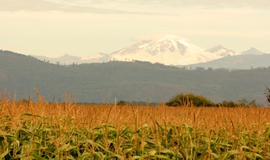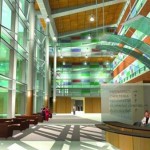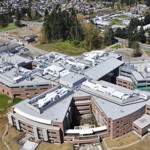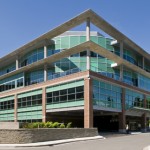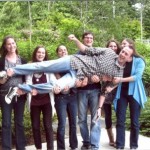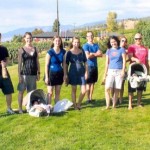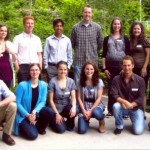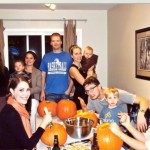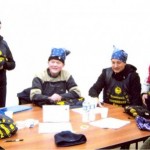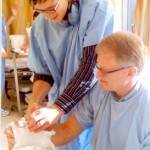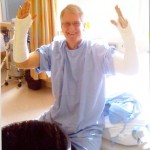Site Directors’ Message
So… another CARMS Website… Argh!
Having arrived on this page, you have decided that Family Med is what you want to do and you are now at the step of “Where do I want to go?” – And if you are not sure – that’s ok – we won’t judge you. Stick around anyways.
So, what sets us apart?
We could talk about our curriculum that gives you all the skills to practice anywhere you want or our dedicated preceptors who make sure you learn what you need to know or our staff that supports and assists you as transition from student to physician. But what really sets us apart is You.
Every year we are amazed at our new Residents. Our Residents come ready to dedicate themselves and excited to embrace a program that trains all aspects of family medicine. Our graduates do full-service practice, obstetrics, ER, hospitalist, addictions, and prison medicine among others. We are proud of how they contribute to their communities.
However, there are a few things to expect if you come to Abbotsford-Mission:
You have to move here. Forget about commuting! It makes your life so much easier and you will get to become part of the community. Traffic is getting worse, which makes for a difficult commute from surrounding areas.
You will need a car. Sorry, but although you may be able to bike to work some of the time, you will still need to drive. Public transit is limited. We place some of our residents in the City of Mission, which is a 15-minute drive across the Fraser River.
Expect to work hard. We have high expectations as we train you to be the best physician you can be.
To get a better sense of what we are about, check out our webpage: https://abbotsfordfamilymed.wordpress.com
And… if you decide on another site but want to come do an elective here, we are always happy to have visitors!
Good luck on your CARMS journey!
Dr. Holden Chow and Dr. Thanh Luu
Lead Resident Message
We’re so glad you stopped by to learn more about the best Family Medicine Residency Site UBC has to offer! Abbotsford is the “city in the country” with a growing population of over 150,000, offering all the amenities of a city (even a Costco) with nature and mountains quite literally right at your doorstep. It is home to Abbotsford Regional Hospital and Cancer Center where residents will do all their inpatient rotations. Some residents will do their primary Family Practice clinics in Mission, which is about 15 minutes away by car. The smaller Mission Memorial Hospital is also located there.
Our program is a tight-knit one. With a smaller cohort size of about 8-9 residents, you will become close with not only your co-residents but also program staff and faculty. The medical community in Abbotsford is also very friendly and collegial; you will become well acquainted with family physicians, specialists, and allied health alike. There is a strong family physician presence both in the community and in the hospital, and we have a very active Divisions of Family Practice that will warmly welcome you to the community.
Our graduates have gone on to practice full-service Family Medicine, Hospitalist Medicine, Rural Medicine, Emergency Medicine, Maternity Care, Palliative Care, Addictions Medicine, Sports Medicine, Prison Medicine, and even Psychiatry. Many of them have stayed in Abbotsford and you may work with them in your Family Practice clinic or in the hospital. It is our goal to have well-balanced, capable, and happy graduates that are fully able to practice the entire spectrum of Family Medicine. To that end, we have maximized flexibility within the program so that you can build your skills wherever your interests and needs lie. Whatever your future career goals are, our site is the site for you!
Highlights of Our Program
Goldilocks Size… Not Too Big, Not Too Small
- As the only residency program in Abbotsford, our residents usually work one-on-one with staff. You will be first in line for consults, procedures in the ER, and deliveries C-sections on the maternity ward, and intubations on Anesthesia.
- That being said, the hospital runs efficiently without residents. This translates to fewer service requirements and more time spent learning. Preceptors see your work as an appreciated extra set of hands as opposed to an expectation.
- Family doctors are at the core of inpatient care. The majority of medical patients are admitted under the Hospitalist service, which manages all types of interesting and complex clinical presentations. At the same time, ARHCC is a tertiary hospital and the regional center for the Fraser Valley receiving transfers from Mission, Chilliwack, Hope, Langley, Maple Ridge, etc. We have consultants in almost every specialty minus neurosurgery and cardiothoracic surgery. In addition to CCU and ICU, we have a Pediatrics ward and NICU, a locked Psychiatric ward, a tertiary Palliative Care Unit, and an Oncology ward that benefits from being adjacent to the BC Cancer Centre. This means excellent opportunities to manage sick patients and plenty of exposure to rare conditions.
Special Rotations
- The rotations that stand out to us are too many to list, but we thought we would highlight a few here…
- Emergency Medicine (6 weeks) – ARHCC is a busy Level 3 trauma centre and our Emergency Department is entirely staffed by FRCP (EM) and CCFP (EM) graduates. You will get a lot of hands-on experience including laceration repair, splinting/casting, chest tube insertion and other procedures, point-of-care ultrasound, and codes/resuscitations.
- Obstetrics (4 weeks) – Residents are involved with all the Family Practice and Obstetrician deliveries as well as patients that come through triage. The Abbotsford Maternity Group is staffed by family physicians who do exclusively maternity and as a result, are among the most competent mentors to learn from. There is ample opportunity for hands-on experience including participating in deliveries, repairing lacerations, first assisting in C-sections, performing maternity care examinations, and practicing with ultrasound.
- Anesthesia (2 weeks) – This rotation is primarily airway-focused. You are not obligated to stay in one room, but instead are free to hop between rooms, maximizing time spent working on your intubation skills. Residents typically get around thirty intubations over the course of the two weeks.
- Youth Clinic – On our Pediatric and Psychiatry rotations, we spend time at Foundry Abbotsford, a truly unique place that caters to vulnerable youth.
- Palliative Care (4 weeks) – This is an excellent inpatient experience on our own tertiary care unit. This unit is run by very friendly family and internal medicine physicians with extra training in Palliative Medicine. New in 2020 was the inclusion of the LEAP course in our academic half-day curriculum.
- Addictions (2 weeks) – This is our only core rotation away from ARHCC. Residents work with the addictions service at Surrey Memorial Hospital and become certified in methadone prescribing.
- Our residents also complete rotations on Cardiology (outpatient and CCU), Hospitalist Medicine, Nephrology, General Surgery, Orthopedic Surgery – unique opportunities to focus on some of the higher-yield but often-confusing conditions seen in Family Medicine.
- Lastly, we have an excellent ICU elective elective that many of our residents do in R2.
Longitudinal Family Medicine
- Abbotsford-Mission allows you to provide real continuity of care to a very diverse patient population. Throughout your two years here, you have at least one afternoon per week with your Family Practice preceptor. Patients are scheduled on your half-days so you can follow them over the course of weeks and months. Prior to clinic, you will have an academic half-day with the rest of the residents. This means one full day devoted to Family Medicine weekly, regardless of the service you are on.
Call… Abbotsford Style
- Apart from Obstetrics, there is no overnight call! We do call until 11 pm without a post-call day. The reason behind this is simple: learning and wellness. We have high-quality and high-volume days on rotation, and we feel that you learn more during the daytime than you do at 3am. And it is so nice to sleep in your own bed!
- We schedule our call shifts. Having control over our schedules means never having to miss another important life event. Aside from hospitalist call, residents are typically the only learner on a service, thus they have total flexibility to change their shifts to take advantage of learning opportunities; for example, you may choose to do call tonight instead of tomorrow if you want to help out with a pericardiocentesis planned for this evening.
- “Choose your own adventure” call in R2. Instead of doing our standard Hospitalist call (dealing with ward issues and admitting patients from the ER), you can opt to do ER shifts, Youth Clinic shifts, Obstetrics, Cardiology or really any other type of call that appeals to you. If you can set it up, you can do it! This is particularly useful if you’re planning on doing maternity or applying to a R3 program.
- Call is 1:4 during R1 and the first half of R2; however, there is no call requirement when you’re on elective unless that elective has call. Call decreases to 1:6 for the second half of R2.
Community
- Built in 2008, ARHCC is a 300+ bed hospital…and it is beautiful! It’s also your home for almost two whole years. You’ll be able to greet people by name as you walk in each morning. If you need to consult a specialist, most likely you will already know the staff on the other end of the line and they will know you. Having a learner along is the exception, not the rule, so staff are eager to teach…whether you’re working with them or not! If you pass by and there’s something interesting on the go, they’re excited to share the learning opportunity with you.
- We have THE best program staff hands down. From our program directors to administrators, everyone is incredibly friendly, responsive, receptive to feedback, and invested in making sure residents are thriving. We all hold leadership roles throughout residency and work as a team with program staff to constantly improve and make our program the best in Canada.
- As a smaller program, we quickly become fast friends. Our resident group is very supportive of each other, and we also love to have fun! Ski trips, weekend retreats to Washington, and visits to the local breweries/wineries are just a few of our past adventures.
- The Fraser Valley has wonderful outdoor opportunities. From hiking to skiing, you can be active year-round. Or you can go to the well-equipped, but very affordable, the gym at ARHCC to keep in shape! You can ski Mount Baker, hike Mount Cheam, and then drive down to the US to bike around the San Juan Islands.
Weaknesses
A frustrating part of CaRMS is hearing everyone play-up their program’s strengths while minimizing the downsides of the program. We love our program and feel that the list of weaknesses is short, but we think these things are better to know up-front.
- As mentioned above, the hospital will run fine without you. In order to maximize your experience here, you will need to take the initiative to get involved. People love having you around once you declare yourself, but no one will force you to do anything. If nurses don’t know you’re on call, they will just call the staff. If the staff doesn’t know you’re on call with them, they will do the consult themselves. The ideal residents for Abbotsford are willing to put themselves out there – there’s a treasure trove of learning to be had, but you have to go for it!
- There are limited opportunities to teach medical students. We do case presentations at half-days to teach each other, presentations for nurses during certain rotations, and we have an active journal club. However, we only have medical students coming in for a few rotations where you will have the opportunity to pass along your wisdom (Pediatrics, Psychiatry, and Internal Medicine).
- You’ll need a car – Abbotsford and Mission are not very public transportation-friendly.
If you have any questions about the program, we’d love to hear from you! Good luck and we look forward to meeting you on the CaRMS tour!
Dr. Michael Wollin & Dr. Maria Zhu
Number of Residents: 8 CMG, 1 IMG
Location: Abbotsford, BC
Community: 150,000
Hospital: Abbotsford Regional Hospital and Cancer Centre
Distance from Vancouver: 70 KM
Curriculum Type: Partial Integrated
R2 Elective Time: 12-16 Weeks
Contact: Site Co-Directors – Dr. Holden Chow and Dr. Thanh Luu/ Coordinator –Rhea Ignacio
Lead Residents: Dr. Michael Wollin & Dr. Maria Zhu
Overview
The people of Abbotsford expect the family physician to be their main caregiver providing full-service care. The site will train family doctors who will service smaller urban communities where the care of patients is directed by family doctors. Residents will be mentored by preceptors who practice full-service care. Abbotsford is one of the fastest-growing communities in Canada and you will be amply exposed to all ages. Particular strengths are obstetrical, pediatric, and palliative care.
A majority of training will occur through the regional referral center, the Abbotsford Regional Hospital and Cancer Center, a 300-bed facility. Some highlights include a 150-bed Medical Unit under family practice, an Obstetrical unit with approximately 2,500 births per year mostly delivered by family doctors, a tertiary Palliative Care unit, a dedicated Geriatric unit, a stand-alone Oncology unit, a busy Emergency Department, and a Regional Trauma center run by CCFP-EM Colleagues. Because we have a small number of learners, you will be able to do lots of procedures and see lots of patients. You will also be given responsibility.
Academic Structure
We use a ‘partially integrated’ model which means in the first year, you will rotate through core rotations. However, you will be back in your FP offices one to two half-days a week on an ongoing basis. This ensures that you stay well-grounded in family practice and develop continuity with your practices. This ability to stay connected with your family practice office is one of the strengths of this training site.
We also pride ourselves in our Academic Half Day program. We take advantage of this time to supplement and emphasize important topics. There is plenty of interaction and we always have a family physician facilitate to maintain relevance to Residents. In our Academic Program, we also focus on reflective practices and medical leadership. In addition to key topic lectures, we have resident lead journal clubs and case presentations. Our past residents wanted more practice in certain skills and as a result, we created a recurring series to strengthen skills in ECG reading, Oncology, Radiology, Clinical Reasoning, and Procedure Days. We also focus on reflective practices and medical leadership.
How are we unique?
We are currently the only program with a Program Coach whose main focus is the quality of teaching and evaluations. The Program Coach provides resources and training to the preceptors and residents from an educational perspective.
We have a flexible call with overnight call options for some rotations. Most call shifts are evenings and end at 11 pm. Call is flexible in the second year.
We also have very strong leadership in our residents and actively collaborate with them to improve the program experience. Please contact our Lead Residents if you have any questions. For more information on what is happening at our site please visit https://abbotsfordfamilymed.wordpress.com/
Abbotsford is known as the “City in the Country”. The city is surrounded by beautiful mountains and farmland but has great amenities in close proximity to the city center. Please check out http://www.abbotsford.ca/ for more on our beautiful community.
Interview with a Former Resident
What made you choose the Abbotsford Site?
Abbotsford is similar to the kind of city that I would like to practice in – it’s small (150,000) and has a strong sense of community. The family doctors here are full-service so there are opportunities for me to learn a broad range of family medicine. While it’s small enough that there’s minimal competition for learning, and it’s large enough that you have access to most specialists.
What are some of the unique learning opportunities at this training site?
I think all of our rotations are strong, but our most unique opportunities would be:
- Month-long palliative care rotation on a well-established palliative care ward. I now feel comfortable using opioids, addressing pain, and feel more prepared for end of life discussions.
- Youth Clinic runs twice weekly in the evenings. A new initiative by one of our faculty members, it’s only a few years old, is often staffed by new grads from our program, and brings a smile to your face regardless of the kind of day you’ve had. Probably one of my most meaningful experiences to date: I’m away on elective now and can’t wait to get back and help out.
- Indigenous reserve visits. Weeklong trip up North with Dr. John to visit some of the reserve communities he cares for via telemedicine in Abbotsford. We’ve only had two residents participate in this program. The funding is a bit spotty at the moment, but we’re trying to get everyone up North with Dr. John to see the kind of medicine he practices. It’s an inspirational experience, and while not fully up and running (and may never be), I think it highlights our programs desire to seize new opportunities.
Is there a large service component to your residency?
We are on call roughly 1 in 4 for all rotations. For most rotations, we are on call until 11 pm and then work the following day. This is different from the typical 24-hour call followed by a post-call day. There are so many rich learning situations available at Abbotsford Regional Hospital and the staff is eager to teach residents. This makes our call shifts a great learning experience. There is minimal service expectation at the hospital. This allows your experiences to be maximized for learning.
Does it get fairly competitive with the other residents?
There’s no competition amongst the residents – in fact, it’s quite the opposite. There aren’t very many learners at our site but there are a lot of staff who are available to teach. They give us first crack at the interesting cases and we’re often first in line to help out with surgeries. We’re encouraged to go to the ER to see what’s happening and to sign up to help out if we have time.
What kind of facilities are available in Abbotsford?
The hospital was built in 2008, so it’s really new. It’s a tertiary care facility – nearly all of the specialties are represented here and we handle most of the cases within the hospital. To my knowledge, the only cases that are transferred out are neurosurgery, cardiac surgery, and cardiac catheterization. The hospital handles a high volume of obstetric (~2000 deliveries) and emergency cases so it can be busy even though the community is smaller than an urban centre like Vancouver. Abbotsford also has a wing for the BC Cancer Agency and has an extensive dialysis program as well.
Are there many recreational and cultural activities available in Abbotsford?
We work hard, and love our time outside the hospital too! We make a point of spending time together outside the hospital, which is a fun way to bring us some balance.
There are established annual activities in Abbotsford, such as the International Airshow, the Berry festival, and Agrifair. Abbotsford has its own symphony and an excellent recreation centre. Vancouver is only a 45-minute drive away, so residents have access to big city events as well.
For outdoor enthusiasts, there are many amazing opportunities. There is excellent mountain biking, hiking, white water rafting, and camping in the Chilliwack and Mount Baker areas. During the winter, you can go skiing at Mount Baker as well.
What do you think is the biggest strength of the Abbotsford Site?
The learning opportunities at this site are excellent. The environment is very supportive, there is a lot of one-on-one learning with staff members. I love walking through the hospital and knowing many of the faces. As a resident, you can explore all that medicine has to offer. Personally, I’ve found that this residency has allowed me to really put all the pieces of my training together and apply it to patient care. I love being in a smaller site, getting the chance to know the people around me.
